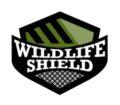Kleinburg, Ontario – 2024
This article will analyze and recount a case of a dead raccoon in a basement wall. It will detail the steps taken in the removal of drywall, disinfection and carcass removal by the technician. This visit is located between Ontario Highway 27 and Treelawn Blvd in Kleinburg, Ontario.
The technicians, before the work is done, must first inspect and confer with the customer or customers on the issue and then must inspect for the source of the activity, This situation began as an exterior rat treatment as the customers were seeing rats on the property and also had a bad smell in the basement. As the inspection was done it was found that the rats were getting into the basement through the deck. This was what it seemed to be at first, but as the work began a discovery was made that changed the situation and the work that needed to be done.
Kleinburg, Ontario: An unincorporated village in the City of Vaughan
Kleinburg is a beautiful town in the City of Vaughan that has a population of just under five thousand people and is home to the McMichael Canadian Art Collection which is an art gallery in the village that specializes in the art of the group of seven. Highway 27 on the west and Stegman’s Mill Road to the east. And is home to a small but lavish community between two branches of the Huber River.
Exterior Inspection
When the technician arrived on site they performed an exterior inspection of the property and found activity under the deck that seemed to only be rats. The goal of the job was to treat the rats on the exterior using large, weighted tamper-proof bait stations containing commercial-grade rodenticide and then trench the area and install a one-way door to allow the rodents to vacate. It was not until the interior inspection took place that the situation changed.
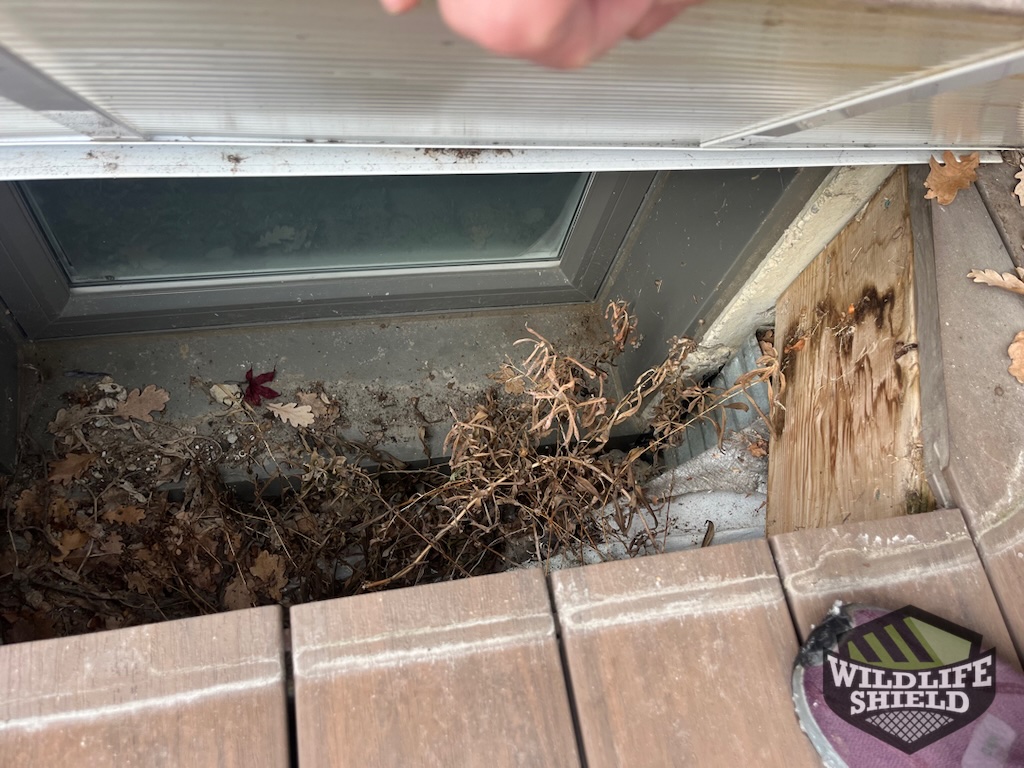
Interior Inspection
While inspecting the interior of the basement the smell was not what would be expected from rats. It was an animal smell and after some removal of drywall, an animal was found. A raccoon had managed to enter the basement, also through the deck and died inside the wall of the basement, complete with a nest and a latrine.
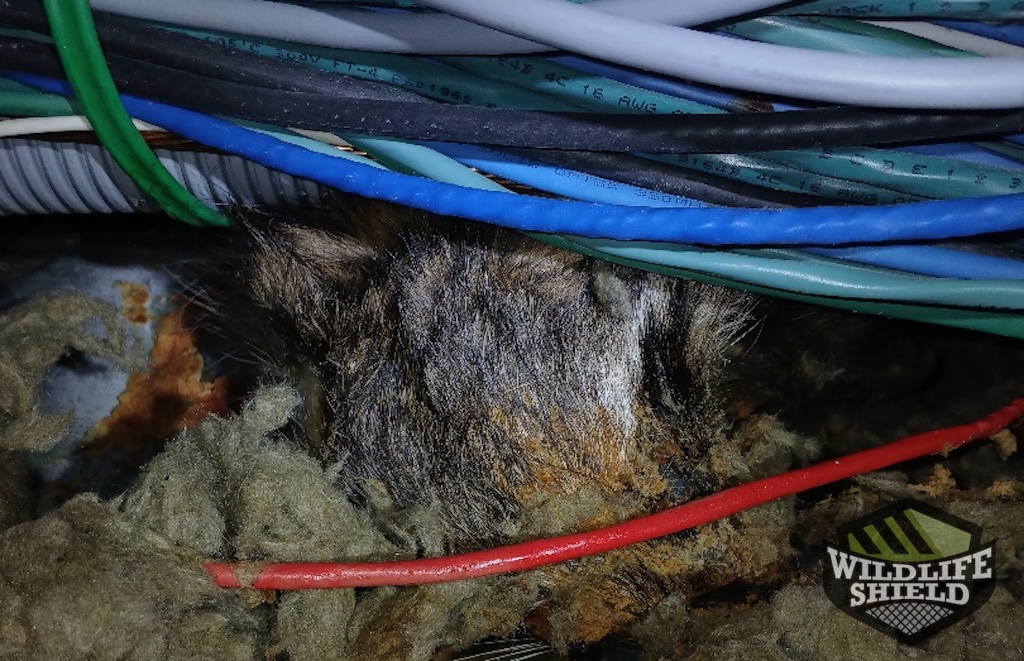
Initial Measures
The first step was to seal off the area the animals and rodents had gotten into which involved a process called trenching as the access point was from under the deck. Animals like skunks and raccoons and rodents like rats like to live under decks and make burrows. To prevent this a one-foot by six-inch trench is dug around the accessible perimeter of the deck and galvanized steel mesh is attached to the side of the deck and buried into the ground one foot down and six inches out. The installation of a One Way Door at the burrowing entrance would ensure any other animal that where still alive in that area could vacate.
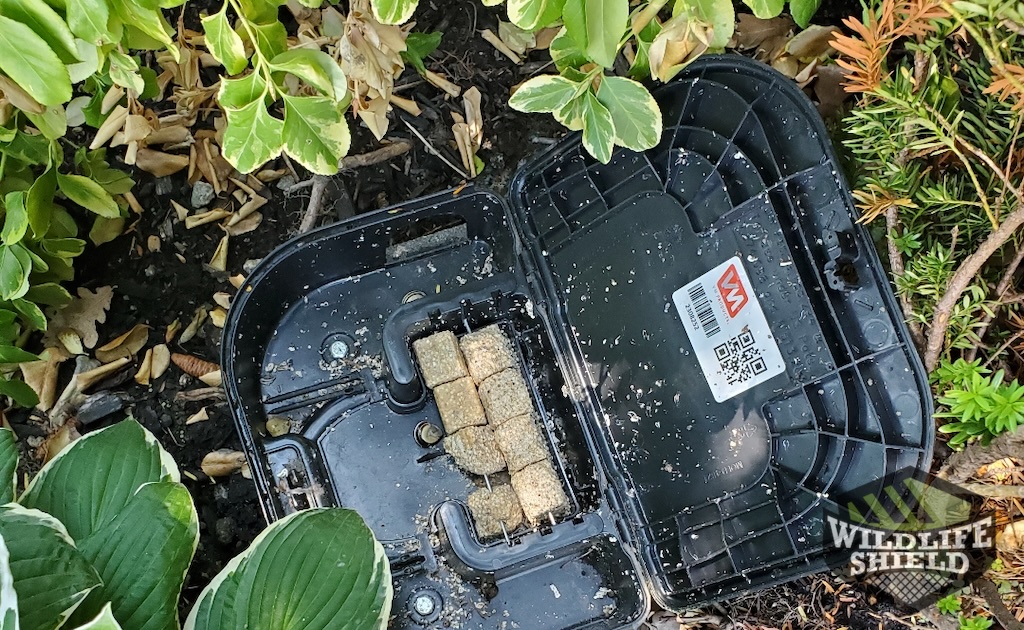
Proposed exclusion
The technician sealed off the deck using the steel mesh and installed two separate doors, one for rats, which is smaller, and one for raccoons which needs to be larger with a spring-loaded door that is harder to push open. The discovery of the dead raccoon in the wall resulted in the removal of the drywall in the basement as well as the insulation. The carcass was removed as well as the feces and nesting material and the area was sterilized using an industrial fogger filled with hospital-grade botanical sterilizers.
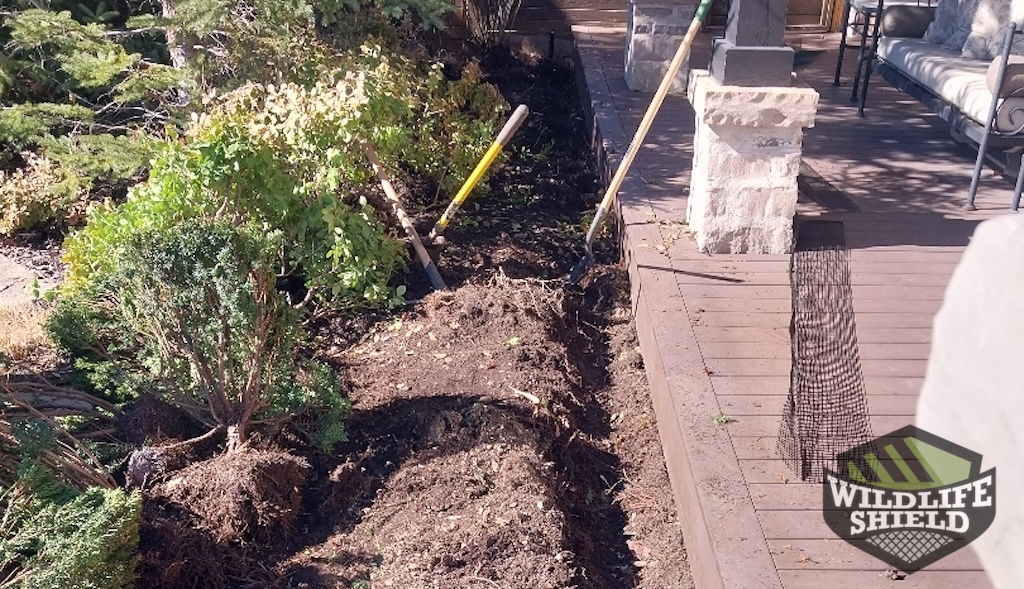
Conclusion
The technician excluded the deck and installed two one-way doors one for rats and another for raccoons. The trenching was completed as well as the disinfection and drywall removal from the basement resulting in the successful completion of the work. This is a situation that often comes up in pest and wildlife control and is why technicians need to do thorough inspections as oftentimes things may not be as they seem.
Contact us at Raccoon Control
See more of our work at the following links:
